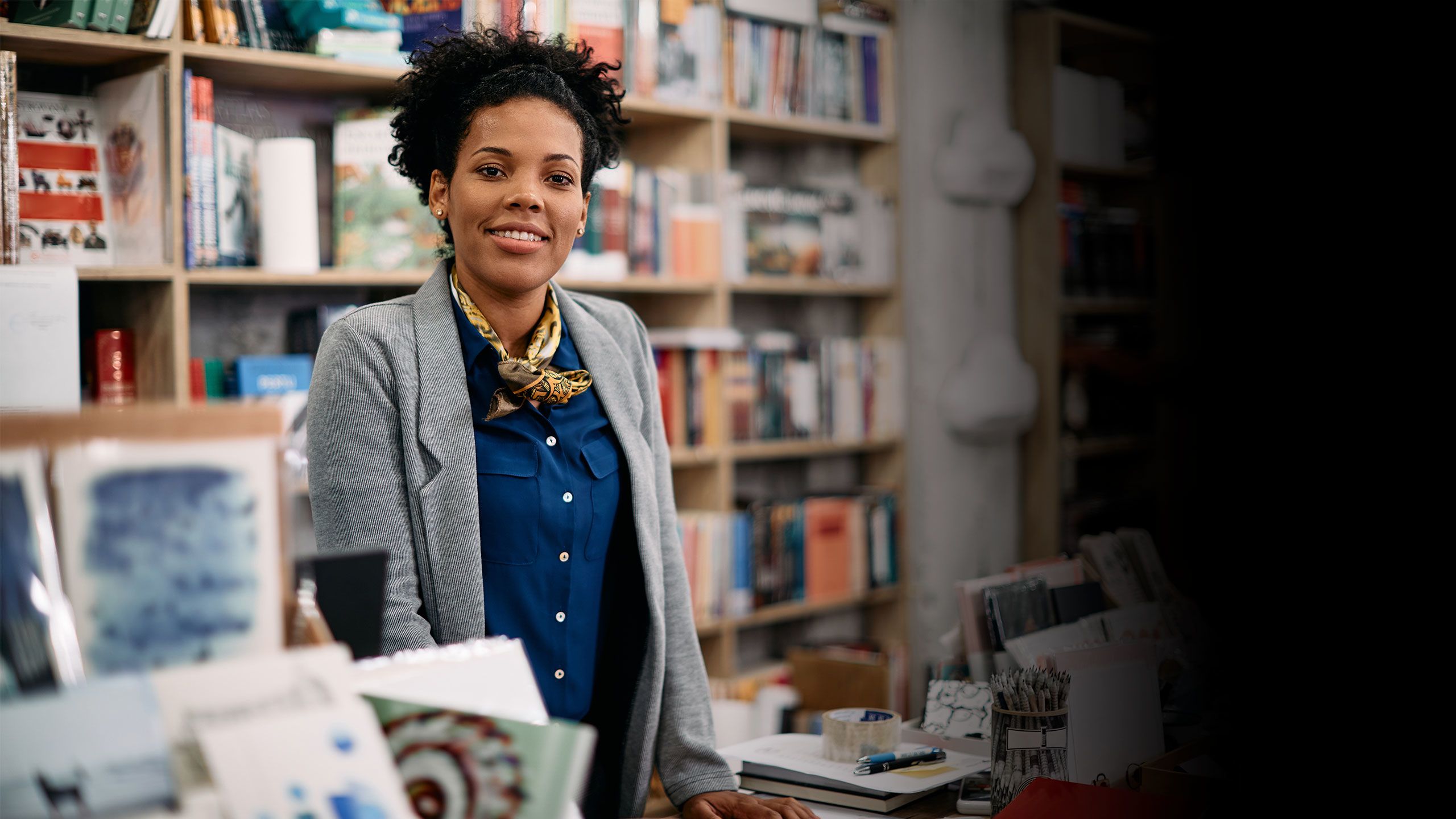An Open Book
Rutgers–Camden professor explores the impact of Black-owned bookstores

Even as many readers go online to find their next favorite book, independent booksellers have remained a force to be reckoned with in the commercial landscape. In fact, they are experiencing a revival: According to The New York Times, nearly 300 new independent bookstores have opened in the United States over the past three years. Black-owned bookstores are unique among the larger population of independent booksellers as places of economic empowerment, where Black culture and intellectualism can be celebrated.

Keith Green, associate professor of English and Africana studies
Keith Green, associate professor of English and Africana studies
“Bookstores are vital to vibrant communities because they are natural gathering places,” said Keith Green, associate professor of English and Africana studies at Rutgers University in Camden. “Black-owned bookstores are especially important, since white-owned, mainstream conglomerates control so many of the ways that we get and understand information. Black-owned bookstores provide a counter narrative and counterculture to these establishments.”
Throughout history, Black-owned bookstores have served as places where ideas are often transformed into action through discussion and activism. The nation’s first known Black-owned bookstore, opened in 1828 in New York City by free Black man and entrepreneur David Ruggles, was one of the few places where abolitionist materials and works by Black writers were available. Ruggles later became the publisher of the nation’s earliest Black magazine, Mirror of Liberty. His store was also known as a safe place where those escaping slavery could stay and rest.

An advertisement for the bookstore owned by abolitionist David Ruggles (Photo from The Library of Congress)
An advertisement for the bookstore owned by abolitionist David Ruggles (Photo from The Library of Congress)
In the 1960s and ’70s, Black-owned bookstores were essential to civil rights, serving as centers of culture and community. They brought Black politicians, activists, artists, and scholars together within the walls of a single business.
“Within the constellation of institutions that have served historically marginalized communities, bookstores are unique because they are intentionally concerned with knowledge production, consumption, and activation,” said Green. “They develop programming that translates complex ideas into digestible pieces and provide access to people and places that might be otherwise out of reach.”
Green noted that Black-owned bookstores are inherently oriented toward social justice, because knowledge empowers people to understand the world around them and formulate the steps needed to implement lasting change.
“Black-owned bookstores tie us to the power of words to change lives,” Green said.
In the years since the George Floyd tragedy, Black-owned bookstores have again become central to the larger discussion on the advancement of civil rights and the Black Lives Matter movement. This is partly tied to the power of storytelling to drive societal change.
“It is almost impossible to achieve what you cannot imagine,” Green said. “Stories allow us to imagine change in the real world that we cannot yet see or believe. They are a blueprint for the emotional and material structures that we want to see manifested in real life.”
As institutions of commerce, Black-owned bookstores are yet another example of the determination, business savvy, and enterprising spirit that exemplifies the African American entrepreneur. As cultural touchstones, they provide the opportunity to imagine a more just and equitable world and the forum to discuss how to make those dreams a reality.
“Black-owned bookstores also remind us of the ways that adversity has been overcome and the beauty that is inherent in each of us,” Green said. “Whether it's Moses or the power and spirit in Harriet Tubman, a story of triumph has the power to transform us all.”




February marks Black History Month across the United States. This year Rutgers–Camden, in coordination with the School of Business, will celebrate Black History Month with a month-long storytelling project titled “The Rise of the Black Entrepreneur.” Delving into the excellence of Black business owners past and present, these stories will draw upon the expertise, experiences, and achievements of Rutgers–Camden faculty and alumni from the School of Business, bringing in the voices of professors from the Faculty of Arts and Sciences for an interdisciplinary approach.

Creative Design: Beatris Santos